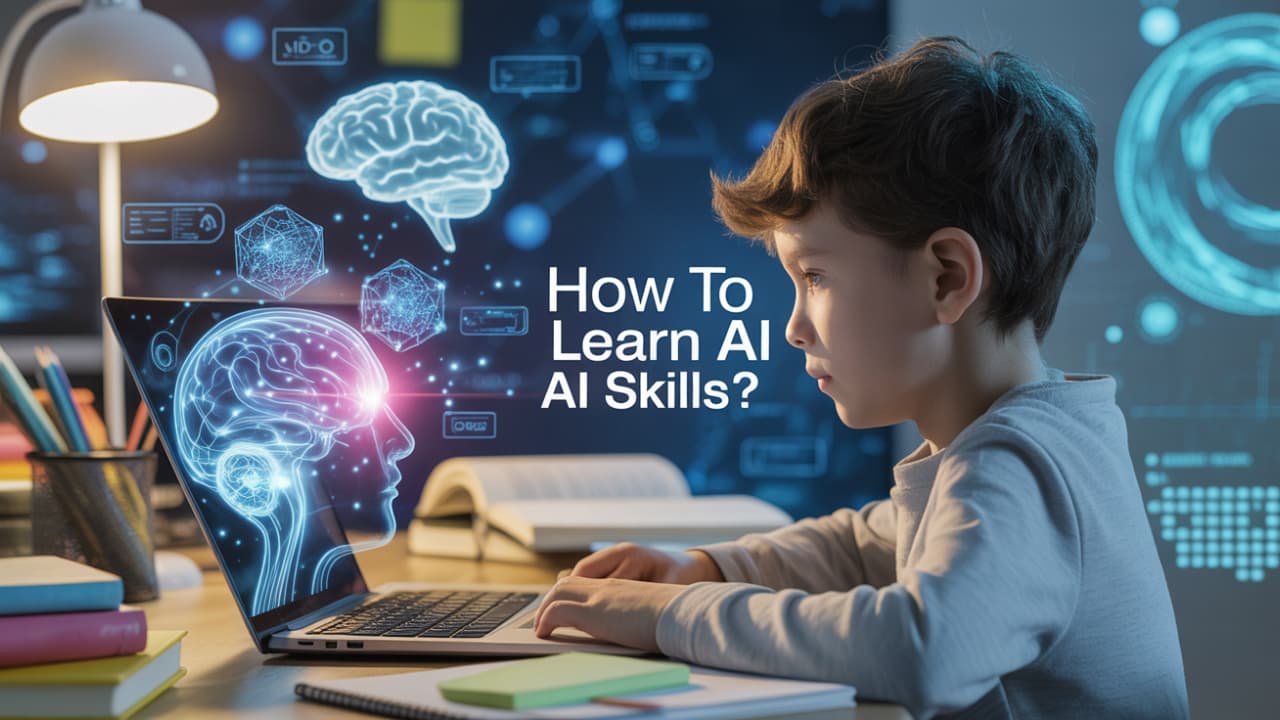Free AI Tool to Audit Website Accessibility — Save Time & Avoid Legal Risks
 Malik
Malik- •
- 06 MIN TO READ

How to Learn AI Skills Artificial Intelligence Step-by-Step
The Future of AI Skills – What Should You Learn Now is not just a question it’s becoming a necessity. As AI revolutionizes industries, not everyone will survive on traditional skills alone. The gap between demand and supply of AI-savvy professionals is widening, and those who prepare now will thrive?
This brings us to an important question, Which AI skills should you focus on learning today to secure your future career? With the global AI market forecasted to hit $1.8 trillion by 2030 (Statista), the demand for skilled AI professionals is set to grow at an unprecedented pace.
Whether you’re a student, a working professional, or an entrepreneur, these skills will keep you ahead of the curve.
Key skills to learn:
Example: Tesla’s self-driving technology heavily relies on ML and deep learning models.
Core skills:
Companies like Google, Amazon, and Microsoft are hiring thousands of data scientists to optimize their AI-driven systems.
Skills to master:
Example: Healthcare providers are using NLP to analyze patient records for faster diagnosis.
With AI’s increasing power comes an equally urgent demand for ethical standards. Bias, transparency, and fairness are major concerns in AI adoption.
Key focus areas:
Pros:
Cons:
Tools to learn:
Example: Retailers are using computer vision to track in-store customer behavior.
Not everyone needs to be a hardcore AI programmer.
Skills to focus on:
Future business executives will need hybrid skills: business strategy + AI knowledge.
Tools like ChatGPT, DALL·E, and MidJourney are only the beginning.
Skills to learn:
Example: Marketers are using generative AI to create ad campaigns within minutes.
Pros
Cons
It’s the art of writing effective prompts for AI tools like ChatGPT to get desired outputs.
Entry-level AI engineers earn $70,000–$90,000, while senior roles can exceed $150,000+.
Begin with Python, data analysis, and ML basics, then progress to specialized fields like NLP or computer vision.
To stay competitive in this changing landscape, developing AI skills has become a necessity rather than an option. Whether you’re a student, professional, or entrepreneur, mastering areas like machine learning, data science, natural language processing (NLP), and generative AI can unlock countless opportunities for your future.